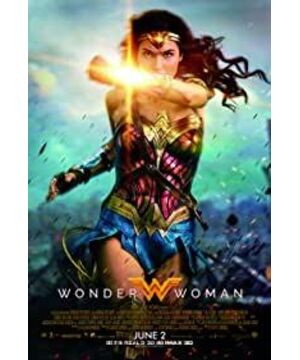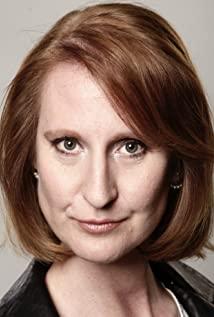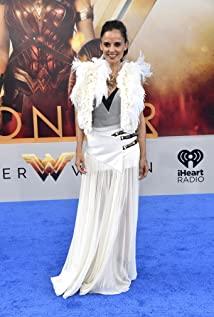Not long ago, James Cameron made this comment about Wonder Woman: "Wonder Woman is a materialized icon, it's just an old male-dominated Hollywood routine."
Later, Patty Jenkins, the film's director, shot back: "It's not surprising that James Cameron doesn't understand what Wonder Woman is, what it stands for, and what it means to women around the world. Although he A great filmmaker, he's not a woman after all."
Feminist film criticism is an attempt by feminists in the 1960s and 1970s to reveal the long-standing male dominance of film ideology (i.e. male-dominated creative groups, male-dominated audiences, male-dominated film theorists) and the deconstructionist film thought that was born out of the neglected anti-feminine nature. In the end, the purpose of liberating the female narrative subject and restoring the objective female role is achieved.
Director Patty Jenkins is a woman, and her previous work "The Devil" accused some women of injustice in society, emphasizing the serious physical and psychological consequences of rape on the victim. The director herself is undoubtedly a thorough feminist. Therefore, she constantly emphasized the status of women in "Wonder Woman", as she explained, she did try to tell everyone in the film "what "Wonder Woman" is, what it stands for, and what it means to women all over the world. what does it mean".
For example, the most obvious, the protagonist is a woman. Of course, there are other arrangements and settings with ulterior motives: the interpretation of "secretary" as "slavery"; the satire of women's dress in that era; the indecision of male MPs in the British Chamber trying to reconcile , and the repelling glances at which they saw the woman entering the chamber...
In terms of character settings, the heroine has always been above the hero: he has saved the hero's life many times; actively invited the hero to sleep beside him; he has always been in an active position when it comes to the topic of sex... The female characters in traditional Hollywood movies of the old days are indeed very different. It can be seen that in dealing with the relationship between characters, the director tries to break the "patriarchal sovereignty" under the silver dream.
It is worth mentioning that in order to refute this, since men have always been in the dominant position in sexual behavior, in the handling of the passionate scenes of the male and female protagonists, the camera stops abruptly after the protagonists kiss. At the same time, it was also expressed in the previous lines: "The pleasure of (men's sexual behavior) is completely unnecessary (unnecessary)". It is an anti-traditional genre film trying to create a "voyeuristic" viewing experience. In this way, the director did "give back" the preset audience hall to women.
But back to Cameron's comment: "Wonder Woman is a materialized icon". What does Cameron mean?
The so-called "objectified", the feminist film critic Laura Mulvey once divided the narrative structure of films under male control into two types - "voyeurism" and "fetishism". The latter refers to dismembering the female image and encoding her appearance as a "fetish" to infect the audience. It can be said that Cameron believes that the character image of Wonder Woman is actually an imagined consumption object created by Hollywood for people (male?).
So, Cameron and Jenkins are also two people on the side of feminism, why are they tit for tat?
The author believes that the crux of Cameron is the fatalism created by the film. Perhaps due to the format of the commercial genre and the background of the comic adaptation, the film renders the role of Wonder Woman too perfectly. The premise is thrown at the beginning of the film: Ares, the god of war, will harm the world, and Zeus creates Wonder Woman to protect mankind. The film "given" the character's innate particularity, the pre-determined "savior".
The dualism of good and evil and individual heroism behind such a setting (this is the ideology that Hollywood has tried to avoid in recent years, such as: "Batman v Superman", "Wolverine 3: The Last Stand", etc.) We will not talk. In contrast, Li in the director's previous work "The Devil" was raped by his father's friends, abandoned by his family, and rejected by the personnel unit when he was a child. Wonder Woman, on the other hand, relies on a fictitious presumed innate advantage, with a spirit of fraternity that represents the female character to act as a savior.
From an existential perspective, Wonder Woman is an empty shell of Dasein. Because of her fate-determined condition, that is, a god who is not "sunk" in the world, she is genuine and meaningless before leaving Paradise Island. In other words, she does not possess the "summary of social relations" in Marxist philosophy. On the contrary, Li in "The Devil" became a homosexual, and became a cold-blooded killer because the injustices such as rape and discrimination she encountered before made her a male-hating character. If Lee was a male, the film wouldn't hold. But just imagine, if we convert Wonder Woman's gender to male, it is conceivable that this will have no impact on the plot development and ideology of the film. Because although the director tried to show his feminist ideas through some formal structures such as plots, dialogues, or character relationships, as mentioned earlier, the essence of the film is a personal heroic entertainment without any progress. The signifier of the image of Wonder Woman cannot represent the inner concept of universal women, but only stays at a level of physiological distinction. That's the crux, which is why Cameron calls it "materialization."
Therefore, the author believes that this film does not reach the height of "feminism" that it advertises. It reminds me of "Lola Run". The heroines of both films are presumed to possess a special ability that makes the world appear to be adapted to them. Wonder Woman's sudden outburst due to the hero's sacrifice before taking down the villain is the same as Lola, who is desperate to save her boyfriend. Then, a new question has arisen, what kind of feminism is the active development of women guided by the emotional fetters of men as a necessary condition? (Refer to Ingeborg Majer O'Sickey's film review "Lola (Can) Get Everything She Wants (Can?)")
View more about Wonder Woman reviews











